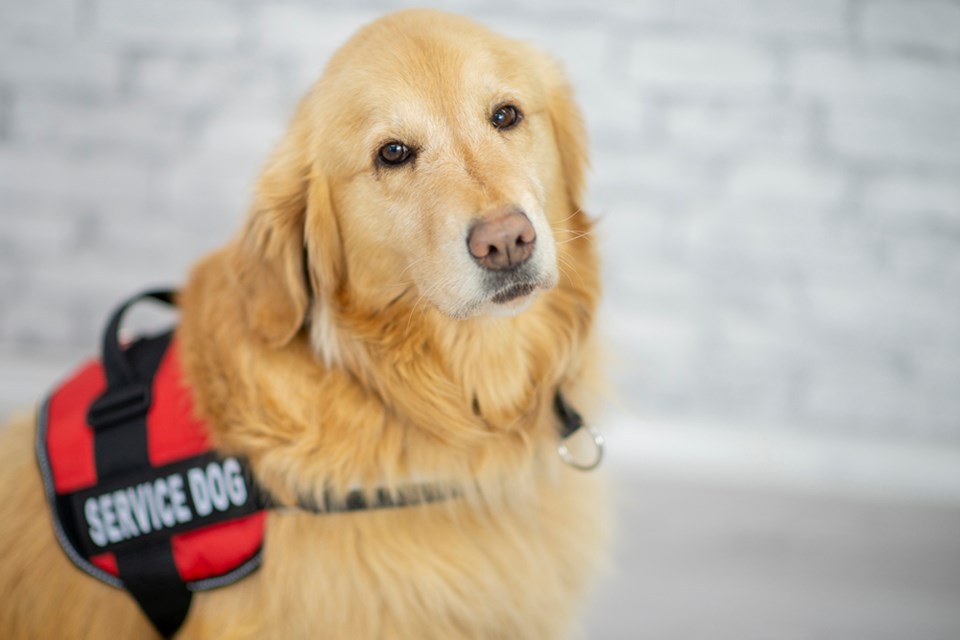North Island-Powell River MP Rachel Blaney is advocating for veterans who require service dogs.
In a media release, Blaney stated that this month, the House of Commons standing committee on veterans affairs (ACVA) wrapped up a study on the use of psychiatric service dogs for veterans. Although Veterans Affairs Canada (VAC) recognizes the mental health benefits of service dogs for veterans, it will only cover up to $1,500 per year for costs related to guide dogs for visual impairment, the release stated.
As the NDP critic for veterans and a member of the committee, Blaney invited Comox Valley resident sergeant William Webb (retired) to testify. Webb had a service dog to help him with his post-traumatic stress disorder (PTSD) since 2014, according to the release. Webb’s service dog, Jessie, died in December. Webb is currently working to get a new service dog.
During the meeting, Webb spoke about his experience with Jessie and the positive impact the dog had on his life.
“I was on numerous antipsychotic medications,” stated Webb. “Within the first year, I was down to one or maybe two. Two years later I was medication-free.”
There are more than 130 service dog providers in Canada, but in BC, only dogs that come from Assistance Dogs International (ADI) or International Guide Dog Federation (IGDF), are automatically certified, the release stated. If the service dog is purchased from another provider, the owner is required to pay a $200 fee and the dog must pass a public safety test.
“Anybody can get a service dog in BC, anybody. If you have a well-behaved dog, you can pass the test,” stated Webb. “My dog has a standard, not a test.”
The committee heard that rules governing service dogs are inconsistent across Canada and this has created roadblocks for veterans with service dogs in obtaining housing, access to public spaces, and access to government services.
“I am not allowed access to any provincial offices, to travel onboard passenger decks of BC Ferries with my service dog, or to take public transit,” stated Webb.
In 2015, VAC signed a contract with the Canadian general standards board to establish a set of national standards to provide assurance that service dogs being provided to veterans are properly trained and meet standardized behaviour requirements, the release stated. However, by 2018 there was no consensus among the technical committee members that the standard could be achieved. As a result, the initiative to develop a national standard was discontinued.
During the ACVA study, Blaney asked Webb what he felt needed to happen at VAC in order for veterans across Canada to safely and securely obtain a service dog.
Webb’s answer was: “I definitely need VAC to stay out of the development of the standards process. Veterans Affairs should support it wholeheartedly but take an independent, outside approach, because service dog organizations have made huge inroads to push their agenda within the department itself. It’s rampant. I run into it all the time. That’s why Veterans Affairs needs to stay out of it and stay completely impartial in the process of a standard.”
Blaney said national standards are necessary.
“I can see that we need national standards so that the end user benefits,” stated Blaney. “Without these standards, there are so many broken pieces that create this fragmented framework that leaves veterans behind.”


